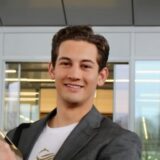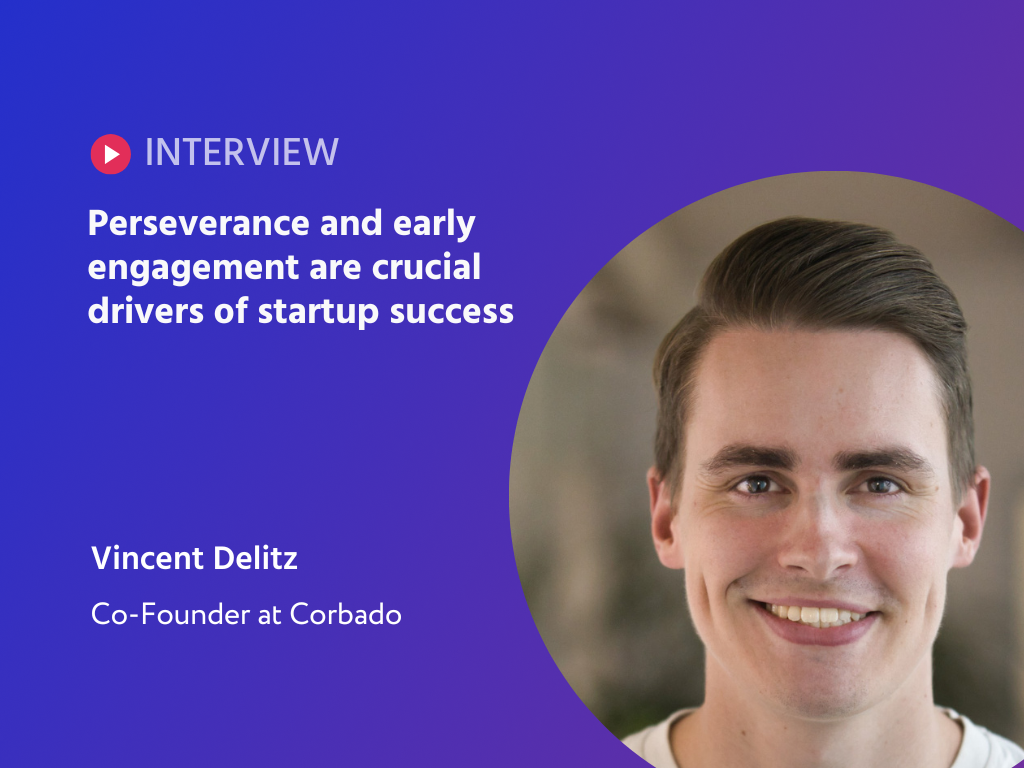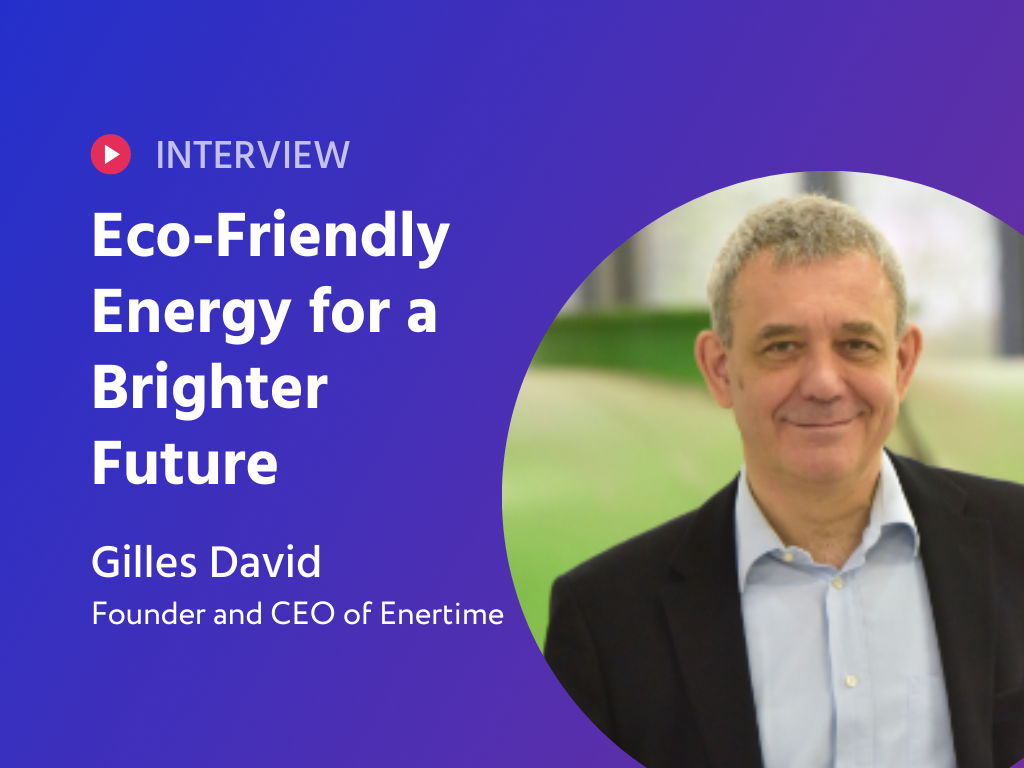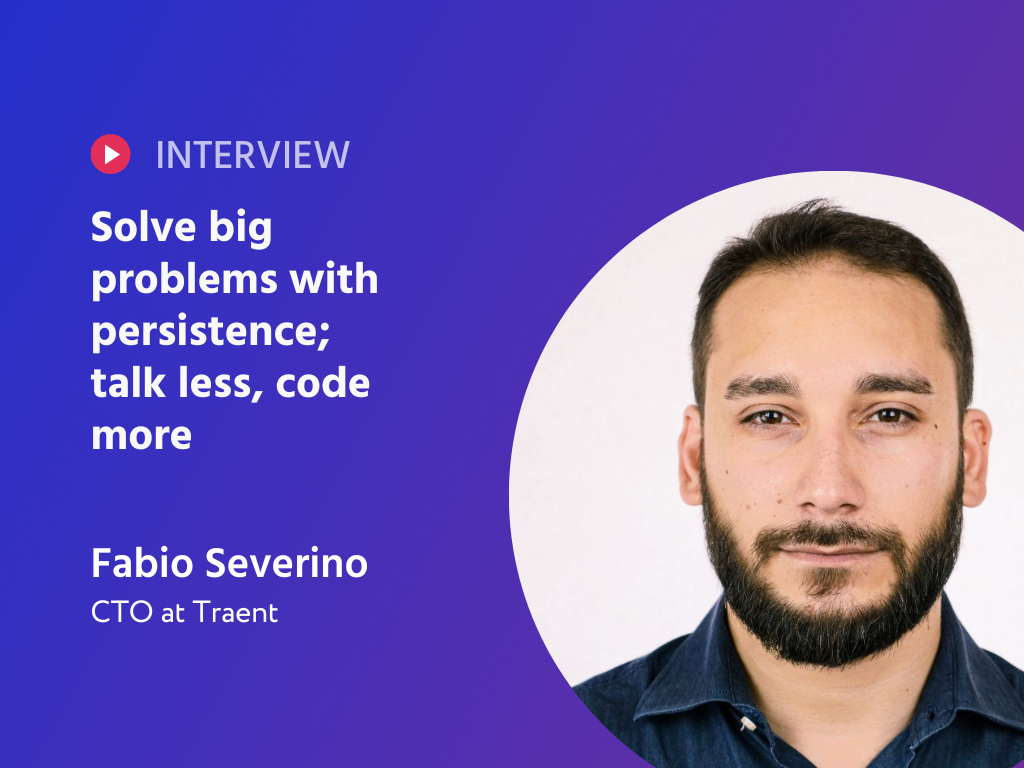In this captivating interview, we bring to you Michael Arens, the dynamic founder of Clean Earth Rovers, a revolutionary company known for its sustainable technological advances. This discussion provides an intriguing glimpse into the mind of a leader, tirelessly working towards creating a greener future, while juggling the demands of an international team across timezones. Join us as we explore the man behind the vision, his unique work patterns, and unexpected personal passions that fuel his relentless pursuit of success.
This journey promises to illuminate the challenges, sacrifices, and little victories of spearheading a sustainable tech start-up, as seen through Michael Arens's compelling narrative.
The Dawn-Breaker CEO with a Marvelous Secret
The man behind Clean Earth Rovers, Michael Arens, unfolds his daily rhythm with an enticing earnestness that instantly connects. With the first light of day, he's already up and running. "It's become part of my routine to try to wake up around 5:30-6am," he says. Who needs an alarm clock when your burning passion to lead a company takes charge, right? Michael's early rise isn't simply a personal preference, but an intentional alignment to match the eastern U.S. timezone where his key team members are deployed. "Your day starts earlier, your workday starts earlier", he adds with a hint of excitement.
Juggling the demanding dynamics of a new start-up, Michael's take on work-life balance offers a refreshing perspective. Despite the daunting 12-hour workdays, he tactfully manages to carve out time for himself. "It depends on what we have on our plate…there are weeks where I am working still 12-hour days, but there will be other days where I wrap up by 2pm. and call it a day", Michael reveals. Amidst the hustle, he doesn't forget to prioritize his 'me-time' to unwind, an art many entrepreneurs yearn to master.
Just when you think you've got Michael all figured out, he throws a curveball - a newfound passion for comic books! "I'm a huge Marvel, like superhero nerd," he confesses with a boyish enthusiasm. Tapping into a childhood connection, Michael now explores the vast realms of Marvel's legendary characters in his spare time. Not your usual CEO pastime, but then again, Michael is not your run-of-the-mill CEO. An intriguing blend of a relentless leader, a time management expert, and a comic book enthusiast, he certainly keeps us guessing what he'll reveal next. As he eloquently puts it, "Your day starts earlier, your workday starts earlier." His life indeed is a testament to this mantra, leading the way one sunrise at a time.
Clean Earth Rovers: A Startup's Journey from Scrap Metal to Ocean Savior
Embarking on a thrilling voyage into the world of eco-entrepreneurship, Michael Arens unveils an intriguing fact about the inception of Clean Earth Rovers. "When we were building our first prototype, it was my summer after graduating high school, using scrap sheet metal parts from my dad's fabrication shop", he shares. With only a handful of blurry photographs as remnants of the past, the humble beginnings of this ground-breaking venture were far from glamorous. Reflecting on the rocky initial steps, Michael chuckles, "We threw it in the water a day before I left to start college… and it didn't work at all." The failure didn't discourage him, it fueled his passion.
Diving deeper into the mission of Clean Earth Rovers, Michael explains how the company is revolutionizing the way we monitor, manage, and remove pollutants from coastal waters. By providing cutting-edge technology, Clean Earth Rovers aims to bridge the gap between inefficient manual methods and the need for continuous, real-time data on water quality. "We've created a small product called the data pod…it gives you the opportunity to scale your data collection in real time", he explains. The solution extends beyond just data collection to actively managing pollutants with an autonomous 'Roomba-like' rover that cleans up everything from dead fish and trash to oil and toxic algae.
The inspiration behind such innovative solutions? Michael cites multiple influences - a deeply ingrained entrepreneurial spirit, his exposure to the world's major problems, and personal experiences. "I've been able to see the fruits and the rewards of entrepreneurship…then the question was just well, what is it that you're going to do and why do you want to do it?" he recalls. The answer came when he learnt about the ocean plastics crisis in high school. Paired with his personal experiences with harmful algae blooms in Florida, it sparked an insatiable passion to solve these critical environmental issues. A favorite quote from Michael is, "I'm learning about a major world problem for the first time in my life, and I was pretty disappointed with what I saw out there in terms of solutions." His journey is an awe-inspiring tale of transforming disappointment into a mission to save our oceans, one rover at a time.
From Ocean Giants to Compact Saviors: How One Entrepreneur Adapted to Clean our Waterways
Starting with the grand ambition to design and build a massive ocean vessel, Michael and his team initially aimed to tackle the monumental challenge of ocean pollution. The original vision was a behemoth: a 60-foot by 60-foot, 20-feet tall ship, capable of pulling 2000 tonnes of debris from the ocean at a time. The idea was to send these colossal ships into the ocean's garbage patches, harvest the plastics, and recycle them. However, after considerable research and evaluation, they realized two disheartening truths: there were no willing investors for such a gargantuan cleanup effort, and the collected plastics did not provide a significant Return on Investment (ROI) when considering the colossal infrastructure necessary for their plan.
Over time, they came to a pragmatic realization. “There's no customer for cleaning up the ocean, unfortunately. And there's no significant ROI when building hardware as large as that for the plastics you'd be recuperating,” Michael explains. They then received a piece of advice that would change their entire approach: start small. The team pivoted from their initial grand concept and began focusing on a smaller scale solution, which would have an immediate impact closer to home. They began to design smaller devices that could be deployed in local bodies of water - lakes, rivers, and intracoastal waterways around the US - to catch pollution before it reached the ocean.
The scaled-down devices have exceeded their expectations in both versatility and effectiveness. Their devices now consist of two pontoons, driving and using the forward momentum to funnel debris into a removable mesh bag. Since these devices were designed, they've discovered new applications for them, like picking up dead fish, kelp, algae, seaweed, and even helping with oil spill cleanups. Michael encapsulates this journey in a memorable quote: "Strength in numbers is our mantra. The more deployments we have, the more impact we make. It's surprising what starts as a small idea can expand and adapt to become a solution for bigger problems." They are now actively engaged in using their smaller devices to take on the large task of cleaning our waters, one piece of trash at a time.
Strength in numbers is our mantra. The more deployments we have, the more impact we make. It's surprising what starts as a small idea can expand and adapt to become a solution for bigger problems
Turning the Tide: Michael on Harnessing University Education and Breakthrough Technology to Clean the Marine Ecosystem
Shaking off the pervasive opinion that university education is just about securing a piece of paper, Michael insists on the enriching experience it offers to aspiring entrepreneurs. He highlights how the university journey bolsters ambitions with an infusion of knowledge, interaction with experienced professors, and the nurturing of community support. The sheer diversity of subjects and ideas one encounters at university, he says, provides an arsenal of skills to draw upon when building a company. “When else are you going to be put into an environment or an atmosphere where you have direct access to somebody like a five-time founder?" he asks, recounting his own journey of mentorship and learning.
Drilling deeper into his enterprise, Michael passionately shares his vision of leveraging technology for a noble cause - cleaning the marine ecosystem. His company has introduced novel solutions in the water quality domain that are unparalleled in their ability to detect toxins and inform key management decisions. For Michael, autonomous vessels are more than just pollution management tools; they represent a versatile platform with massive potential for scaling. "The different use cases and applications, and also opportunities to grow in scale - that, at least in my eyes, is really exciting," he enthuses.
Despite acknowledging the commendable advocacy efforts in this arena, Michael argues there is an urgent need for sustainable outcomes. For him, the key lies in responsibly managing the plastic footprint and fostering a circular economy. He emphasizes the shared responsibility of stakeholders to contribute to this process, from big corporations to individual consumers. And his closing message is a simple yet powerful one, "I'd encourage everybody to have as low of a plastic footprint in your personal life as possible. It's ultimately going to be the most powerful, impactful thing for the industry."
I'd encourage everybody to have as low of a plastic footprint in your personal life as possible. It's ultimately going to be the most powerful, impactful thing for the industry




